photo by Ricardo Esquivel
May 20, 2020 marked the one year anniversary of the Lori Lightfoot administration. Yet Chicagoans are still waiting for her to deliver the promises she ran on, including creating a civilian council with strong police oversight powers.
In May 2019, Ald. Carlos Ramirez-Rosa (35th Ward) announced he was going to reintroduce the CPAC ordinance, which had already died once in the arms of the Public Safety Committee, in 2016. There was newfound hope with Lightfoot taking mayor that month, as she ran largely on police reform.
At the time of Ramirez-Rosa’s reintroduction, the CPAC ordinance had 16 co-sponsors. Since then, CPAC has gained one more Alderperson’s support. Meanwhile, 60,000 Chicago civilians support the creation of CPAC.
While it has taken years of push from civilians and progressive Alderpeople, Chicago Alliance Against Racist and Political Repression’s (CAARPR) CPAC is currently back in Chicago City Council’s Public Safety Committee, where it needs the support of only seven more Alderpeople to pass (here’s how to call your Alderpeople and ask for their sponsorship, by the way).
CPAC would consist of 11 members, which means one elected representative for each two adjacent police districts. Civilians will vote the members in and, as a measure against political corruption, are only allowed to accept funding from their districts.
The Council would have the power to:
- Hire and fire the police superintendent;
- Hire and fire the head of Civilian Office of Police Accountability (COPA);
- Hire and fire the members of the police board;
- Write and determine CPD policy; maintain final authority over CPD policy and COPA policy;
- Maintain final authority over police board policy and disciplinary measures, including firing of officers and convening grand juries;
- Negotiate the CPD union contract;
- Broaden the scope of investigations to include all allegations of misconduct, including sexual assault;
- Oversee all COPA investigations of police misconduct and maintain the power to subpoena officers.
Lightfoot promised to pass some sort of oversight council within her first 100 days in office, but has yet to follow through. Throughout her campaign, Lightfoot assured civilians that if elected, she would support Grassroots Alliance for Police Accountability (GAPA).
CPAC would allow more civilian power over police than the GAPA proposal, so it’s disappointing that Lightfoot favors it. Even so, she still hasn’t passed either one. Even more alarming, she watered down GAPA’s very basic requests in March 2020 when the commission tried negotiating for the power to make impact with a no-confidence vote in the police superintendent. They meant any impact at all, like a City Council hearing or a public statement by Lightfoot on why she agrees or disagrees with the Council’s vote.
Lightfoot denied their proposal and instead suggested a system where GAPA would work with her to create goals for the superintendent and Police Board. These goals would be tracked by police’s written self-evaluations (because that’s going to help a lot, police evaluating themselves). GAPA then would then assess those evaluations, but Lightfoot would maintain the “final performance review.”
In other words, nothing has changed. Like before, the Mayor, and Police Board and Union, have the final say in any and all consequences for police brutality and murder. In fact, we’ve actually already seen Lightfoot exercise such decision making power regarding police accountability.
In 2015, Emanuel appointed Lightfoot as president of the Police Board and gave her a violence-enabling chair on his half-assed apology for covering Laquan McDonald’s murder: the Police Accountability Task Force.
The Police Accountability Task Force was born with the authority to suspend, fire, and punish officers. It was created by Rahm Emanuel after he covered up Laquan McDonald’s murder.
This means that since 2015, Lightfoot has headed a group which can suspend and fire bad cops. She’s had the power to do so for five years. Have you noticed her use it…or are things about the same?
Today, in regards to police accountability, we are in the same spot as 2015. Lightfoot’s vision for a new “strong accountability council” maintains her long held decision-making power, which has so far not been up to par in protecting black and brown people’s lives.
“The existing system is rotten,” said Ald. Carlos Ramirez-Rosa (35th Ward) upon his 2019 reintroduction of CPAC. “It’s not serving us, let’s get rid of our existing bureaucracy and let’s bring in democracy. Let’s bring in community control.”
Rosa’s ideology lays out a stark divide between the actions of Lightfoots administration here. The discourse of reform vs. defund is taking place in every major city nationwide, and establishes itself on whether or not you believe that, as many have put it, All Cops Are Bad.
Even rapper J. Cole has found himself asked this question a lot lately, and as he points out, there is a truth otherwise ignored by Lightfoot’s administration: a good person cannot do good work within the current state of police rules and practices.
Here’s a quote from the Task Force press release in 2016, which, before all else, commends the police for their bravery, and emphasizes the “illegal guns” in policed communities:
“The Task Force acknowledges that policing is an increasingly challenging and often dangerous job. Illegal guns are awash in communities that are devastated by crime, poverty and unemployment.”
The statement describes working with police to reform police. Which is worded sweetly, but is unnerving if you disagree with the idea of taking input from the killers you’re trying to curb: “The Task Force met with many current and former Chicago police officers who are committed to performing their duties lawfully and making Chicago a safer place for all of its residents.”
Police “performing duties lawfully” is what we need to halt. The countless deaths of innocent black people throughout the course of history at the hands of police prove that the laws and duties are racist.
Lightfoot also provided a statement on what she perceived to be the murder problem: “Overall, we found that good police are not supported or rewarded, while too many bad police are given a pass,” Lightfoot said. “Red flags about officers heading down the wrong path are not quickly and aggressively addressed, as they should be.”
They are all heading down the “wrong” path; I mean, they all carry guns and spray gas, and it’s essentially legal for them to kill people of color.
“Officers can go from the Training Academy to retirement with virtually no mandatory training in between,” she said.
Yeah, but what does extra training matter when they’re still teaching police to brutalize? Because, listen, even the mere presence of police is brutality. Because policing itself is brutality. It doesn’t matter how you do it. Again, they have guns, gas, and are allowed to murder.
Author Benji Hart puts it well: “Whenever we use the phrase ‘police brutality’ we are implying that the issues presently facing Black communities are isolated instances of violence perpetrated by biased individuals. This approach derails us from the deeper truth: That policing itself is brutality.”
Plus, cops like to attend training conventions on how to kill.
“The Department needs to invest in its human capital and professionalize the way it manages its people,” Lightfoot said.
Ah, yes, on to my next point-funding for the people! CPAC is step one. Next: defunding the police.
When asked her thoughts on defunding the police, Lightfoot said Sunday “I don’t think that is really what’s underlying this. What I’m hearing in my city and what I’m watching across the country is this desire and demand for resources.”
She isn’t wrong about the desire for resources, but she is wrong to write off the necessity of defunding the CPD. The precedent of defunding police is being set day by day, city by city, with places like Minneapolis and Los Angeles leading the way in ethically balancing city budgets.
Chicago spends 40% of its budget on police because they are the only social service wealthy white people still find useful. They don’t need social security, public healthcare or counseling services, social workers, SNAP money, or student loan forgiveness like working class people do. White people being the demographic which local US governments serve, policing gets the most financial support.
The police are the only public resource middle class white people need, so they are essentially the only one that exists. What Chicago spends on one day of policing is equal to what it spends on five months of Mental Health Services, 18 months of Substance Abuse Treatment, and 32 months of Violence Prevention programs. Being the most funded and equipped public entity in the city, all of Chicago’s power is quite literally in the Police Union’s hands.
CPAC’s aim is community control of the Chicago Police. While this cannot happen without defunding the police and a total revolution of what kind of safety and support the government thinks its citizens deserve, the CPAC ordinance is a push toward dismantling police power.
Given that the right people are elected onto the Council, the added accountability from being able to vote on things like firing the police superintendent would be a stride.
It would take us closer to defunding and, one day, totally abolishing police. CPAC was created by people who’ve lost family members to murderous police.To push CPAC through would mean more agency for victims of police, not to mention a long, long, overdue measure of respect that these families deserve.
What I’m saying, I suppose, is call your Alderpeople and tell them to back the CPAC ordinance. I’m also saying to keep your eye on the prize: Defunding and eventually abolishing the police.
Police and mass incarceration are a system of violence, misery, oppression, classism, and racism. Policing is not a system we accidentally got too lenient with, and brutality is not from a few bad apples acting out of line. These bad apples are doing exactly what they were made to do.
In a 2017 interview with the Next System Project and Mariame Kaba about police abolition, she talks about how reform alone is not enough.
“We can’t allow people to become solely fixated on Trump. We can’t get seduced by the idea that if only we just rebuild the DNC we’ll be fine. We really have to jump in now to shape the narrative,” said Kaba. “The starting point—and this is the gift that abolition as an ideology and a practice has given me—is the idea that the system isn’t actually broken. Right? Because then I’m not preoccupied with trying to fix it. That’s not my goal.”
The system isn’t broken because it’s functioning as planned. Police and prisons were literally designed to incarcerate and/or kill black and brown people. In fact, police began as “slave patrols” in the 1700s.
“Several well‐documented studies of this early form of policing in the South make clear how the antebellum South developed a formal system of social control, particularly in rural areas, to maintain the institution of slavery by enforcing restrictive laws against slaves,” said K. B. Turner, David Giacopassi, and Margaret Vandiver in the Journal of Criminal Justice Education.
Police and prisons are a direct dissension of this formal system. The government subsidized slave patrols and the rest is history; Today, Police enforce restrictive laws against people of color and use the laws to abuse and incarcerate them.
We need a new public safety model where people of the appropriate professions respond to situations. If someone is injured, we need first responders only, not men with guns and tasers. If someone is experiencing psychosis, we need a social worker or psychologist on the scene, not a cop. We have the funds for it.
While it feels far off to succeed in defunding and ultimately abolishing the police, remember we’ve been defunding social security, social work, and education for years. Programs that give human beings their futures. If we truly want to protect people, we need to pull funds from police and into programs that actually insure safety for black, brown, and working class people.
Remember: CAARPR is calling for Chicagoans to dial their Alderpeople–all 31 who haven’t yet backed CPAC–to gain enough support for the ordinance.
Also, there will be a public, June 17 Zoom meeting about how far CPAC can maximize it’s police accountability powers.Finally, check out this amazing Zine on abolishing the police: Created for the opening of the Gone But Not Forgotten Quilt exhibit on October 17, 2016, this zine was created by Monica Trinidad and Sarah-Ji of For The People Artists Collective and Rachel Wallis, the artist and curator of GBNF Quilt Project. Their hope is that in the face of continued state violence that the quilt represents, that the zine would spark conversations and actions towards creating a world in which police are unnecessary

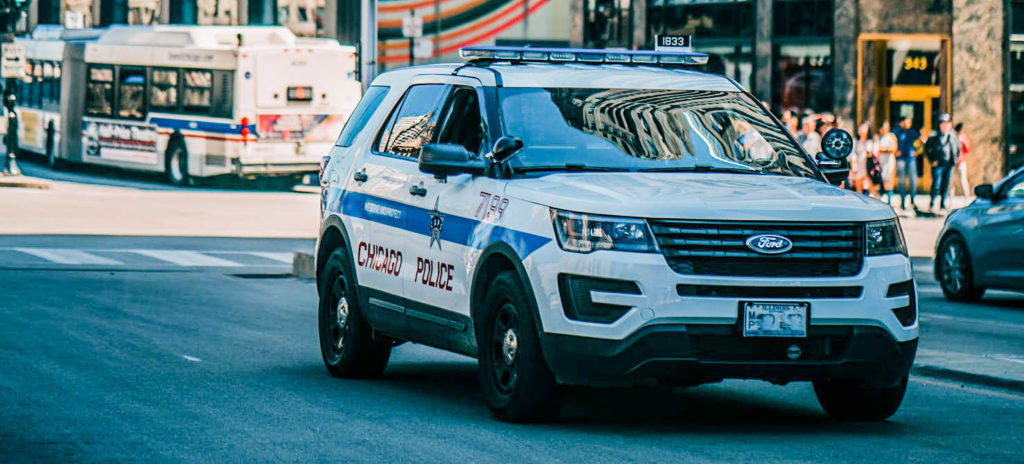
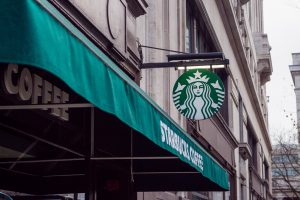

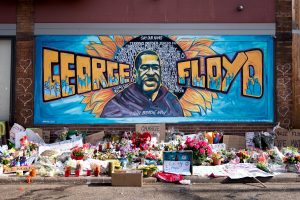

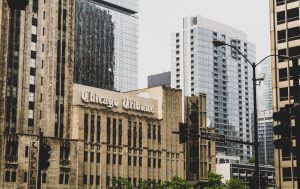

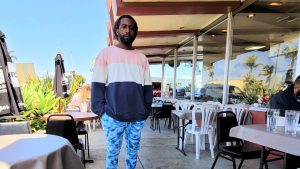

Be First to Comment